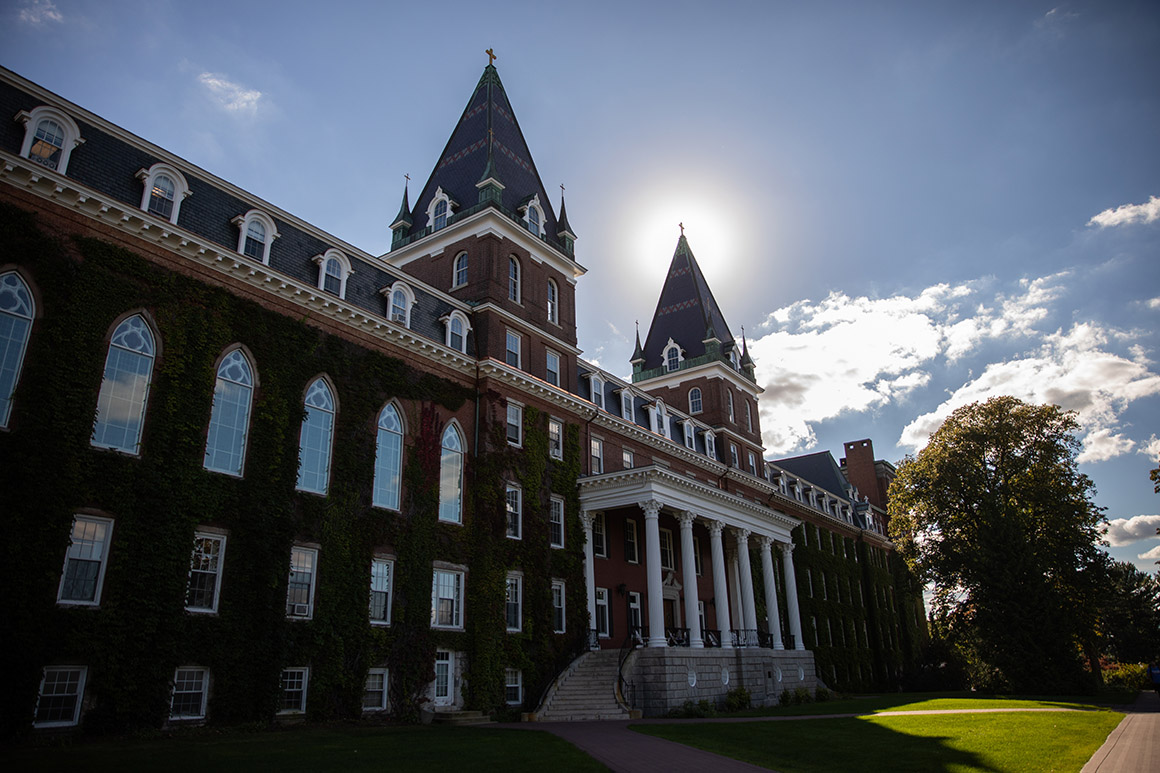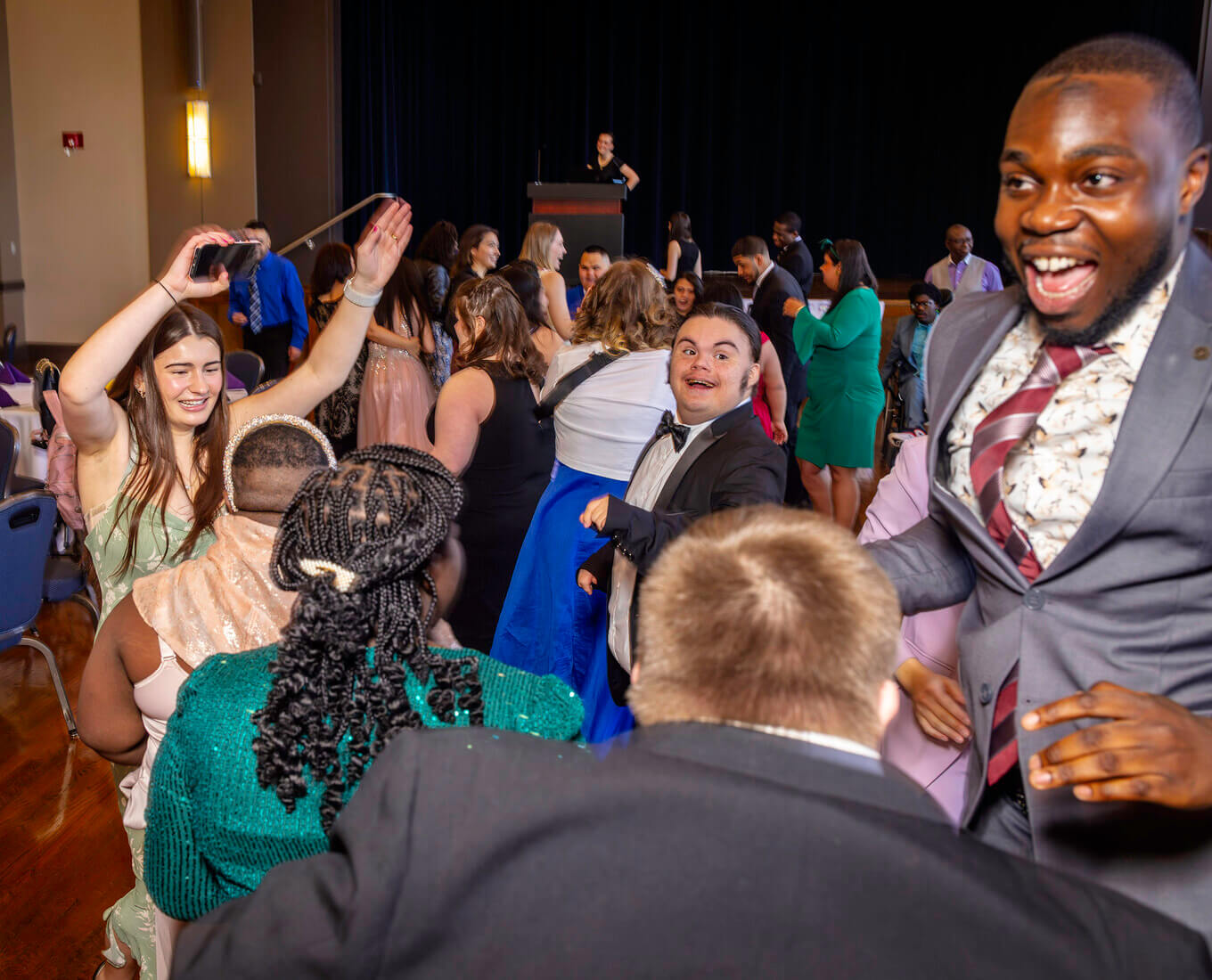
More than four decades ago, Helen Whall ventured up to the third floor of Fenwick Hall to calm her nerves. The then 26-year-old faculty member at the College of the Holy Cross sought guidance from beloved English Professor Thomas Lawler.
"I think about it now, I might as well have been 16," Whall said.
She walked up the flight of stairs from her second-floor office, anxious for advice as she faced her first classes.
"Tom, how do you do it?" she recalled asking him.
"Well, you have to sing to them," Lawler responded.
It was all Whall needed.
"I knew exactly what he meant. The first part of my career was trying to share my love and my enthusiasm for literature and analyzing literature with my students," Whall said. "And then it became trying to help them sing their song. If you’re really, really lucky, you start to see talent in your students that you don't have. They're going to be better at it than you are. But to help young people discover their own voices that they will go on to use beyond the College is just a great joy."
Holy Cross students found their voices through Whall for 42 years before the professor of English retired in 2017. Five years later, with a $2.6 million gift from T. Eric Galloway '84, Whall's impact on Holy Cross students will continue.
With the gift, the College will establish the Helen M. Whall Chair in Race, Gender and Social Justice. The three-year endowed position was created in recognition of the contributions Whall made to her students in the classroom and to the College on innumerable committees.
"I am honored to acknowledge Helen Whall as an inspiring professor, mentor and friend to me and other minorities during a sometimes challenging and, ultimately, rewarding time at Holy Cross," said Galloway, president of Galvan Foundation, a nonprofit that supports advocacy organizations, thriving communities and cultural expressions that foster civic participation.
Whall met Galloway as an advisee a few years after she joined the College's English department in 1976: "I knew from the moment he walked in the door, this guy is special," she said.
Almost 40 years later, the connection the two built on Mount St. James continues, and the creation of the Whall Chair highlights the immeasurable value of the bonds established between Holy Cross students and faculty.
Images of Fenwick Hall, a first football game or the aroma wafting from Kimball Hall can live in the memories of alumni. For some, the thoughts are synonymous with Holy Cross. But what elevates the experience on The Hill, even decades after graduation, are the connections built on campus – something the Whall Chair will foster in classrooms.
"Part of our conviction as a liberal arts institution is that engagement with the arts, sciences, humanities and social sciences is what helps us to become fully human, to become fully who we are meant to be," said Margaret Freije, provost and dean of the College. "If you talk to alumni, most can tell a story about one or two faculty members where it was in that course that their whole perspective —and how they thought about the world — changed, and that's the key to a Holy Cross education."
With part of the gift, the College will establish a bi-annual Shakespeare lecture series in honor of Whall, who introduced the writer to generations of students on Mount St. James. Through this initiative, Shakespearean scholars will visit campus to speak on issues of race, gender and social justice. The themes will extend to any insights that might be gained through analysis of his works.
"Shakespeare is so observant about human nature and social interactions, that even if he was totally unaware of what he depicted might mean in 2022, the insight is there for us to locate. You don’t have to force the plays. It’s just there," Whall said. "You can access his plays in many ways to kind of give us an understanding of the past, but also to understand the present."
Today, about five years into retirement, Whall said she still receives notes from former students running ideas by her, updating her on their careers or sometimes just describing a Shakespearean performance they attended.
"What I want to make clear is how pleased I am that Eric has acknowledged the faculty of Holy Cross," Whall said. "For me, that’s really important. It’s not just me. I mean this genuinely: We have so many dedicated and talented teachers whose scholarship addresses differences and whose teaching engages students fully. For me, what's important about Eric's gift is its acknowledgment of the influence that teachers have."
New Whall Chair Will Continue Fostering Lifelong Bonds Between Students and Faculty at Holy Cross
The chair was made possible through a $2.6 million gift


